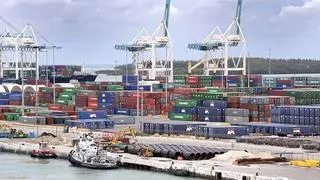In a career span of more than 20 years, Ajit Deshmukh had played a leadership role in cross-border M&As, fund-raising for tech companies and various other deals. A category-I merchant banker, Deshmukh is now Managing Director of Equirus Capital, a full service investment banking firm. At Equirus, he has worked on deals such as the acquisition of Munich–based AE Automotive Elements by engineering services start-up Allygrow Technologies, advised Antuit’s acquisition of Chicago-based Prognos and mGage’s acquisition of Unicel Technologies, among others. In a tête-à-tête with BusinessLine , Deshmukh discussed the M&A scenario in the country, large corporates setting up internal investment banking units and the overall start-up and e-commerce scenario.
2015 was not a great year for M&As — there were no large deals, while the total deal value slid to about $26.3 billion. How do you see 2016 unfolding?
On inbound (M&As), I don’t think there were too many sellers, while on outbound there was the impact of the fluctuating dollar. In 2016, we will see a lot of deals in IT and most of them will be outbound. This year will be generally better for M&As across sectors with industrials seeing some inbound action as now investors will ‘Make in India’. ‘Digital India’ would mean that industrial people would probably not mind buying assets, while ‘Make in India’ will definitely see some brownfield activity. In infrastructure, we don’t see much M&As, but many infrastructure companies have assets on the block.
This year, the industry expects average deals in the IT space to be large compared with last year. What are your expectations?
There is a significant change in the way technology is looked upon, with digital, SMAC and all that. IT has seen lots of waves such as Y2K, client server, internet, cloud, SMAC and the whole digital transformation. Whenever there is a change, companies need to buy capabilities which are mostly through outbound acquisitions. This year, Wipro and Infosys have done some deals and now TCS is also expected to announce some deals.
Why is it that now infrastructure companies are looking to sell assets without building them?
One reason is that many have heavy debt and in order to service that they need cash flows. Selling assets is the simplest method to reduce debt. There is consolidation happening in cement. All infrastructure companies have assets on the block.
Now large corporates are setting up internal teams for investment banking. How do you see this?
Most of the matured buyers have their teams. They always like an independent view of everything that is happening. For investor bankers, the nature of work sort of changes from what they execute but also they act like mirror of the market as a third party view. There is lot of value that a banker can add. All the matured buyers do have their team and they do see value in bankers. So it will co-exist for a long time.
How is the start-up and e-commerce scenario shaping up? Is it another bubble?
The entire ecosystem is coming up quite well. There are more and more angel investors willing to sign cheques for start-up investment. I don’t think start-up is a bubble. It is a necessity though chances of failure in start-ups are more and chances of failure in large companies are less, which is natural. But unless you have hundreds of start-ups how do you build the pyramid? So this is a necessity.
Now a lot of private equity firms are grabbing controlling stakes in portfolio companies. Your comments?
Indian PE has matured and Indian promoters have also matured. It’s a relatively new phenomenon that has emerged over the past two-three years. But the western world has been doing buyouts and control deals for a long time and now it is coming in here also. In family businesses, succession is not there. So they wouldn’t mind selling it to a PE.
This year, do we see more of inbound or outbound deals?
Sector-wise IT would be outbound and the rest inbound. TCS has done more than 30 acquisitions but they are not talking about it. Take top 10, everybody is in the market and they are talking to practically every banker. No longer is it geographical buying — it’s capability buying.







Comments
Comments have to be in English, and in full sentences. They cannot be abusive or personal. Please abide by our community guidelines for posting your comments.
We have migrated to a new commenting platform. If you are already a registered user of TheHindu Businessline and logged in, you may continue to engage with our articles. If you do not have an account please register and login to post comments. Users can access their older comments by logging into their accounts on Vuukle.